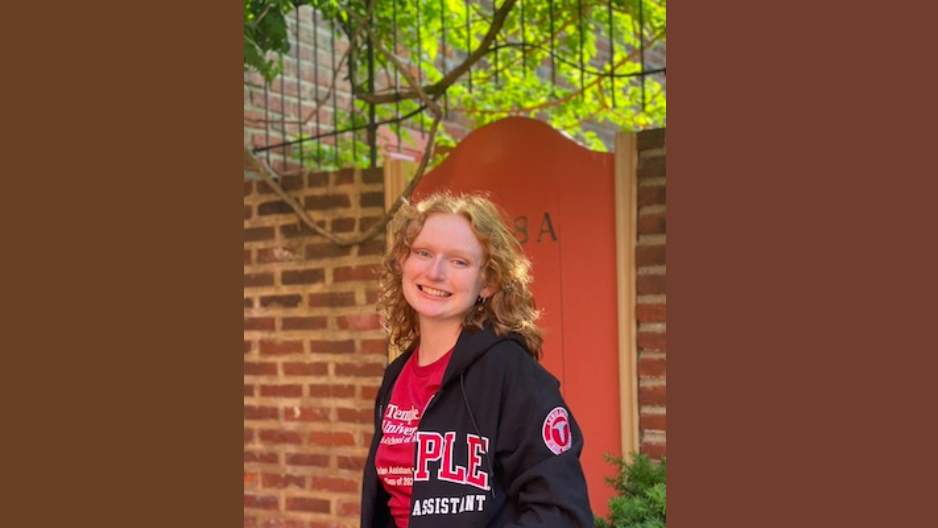In celebration of Women's History Month, we shine a spotlight on Emma Wilmeth, a second-year Physician Assistant student at the Lewis Katz School of Medicine at Temple University. Wilmeth is dedicated to addressing healthcare disparities and advocating for marginalized communities exemplifies the spirit of women making a difference in the field of medicine.
Inspired by the remarkable work of Ala Standford, MD, a native Philadelphia physician who founded the Black Doctors Covid-19 Consortium to provide essential healthcare services to underserved communities, Emma shares, "Standford saw this gap in care and was able to fill it. She continues working to address the structural racism and inequities that affect the community's level of care." Emma's admiration for Dr. Standford's tireless efforts in tackling healthcare disparities resonates deeply with her own commitment to making a positive impact in the medical field.
As a second-year PA student, she has encountered challenges as a woman in the medical field, particularly around misconceptions regarding her level of training and instances of objectification. Reflecting on her experiences, Wilmeth acknowledges, "Most of the obstacles I face in medicine stem from questions surrounding my level of training." Despite these challenges, she remains steadfast in advocating for herself and other female healthcare workers, emphasizing the importance of creating safe environments and addressing gender disparities within the healthcare industry.
Discussing the evolution of women's contributions to healthcare, Wilmeth recognizes the historical innovations made by women in the field while acknowledging the ongoing inequalities in pay, opportunities, and representation. In speaking on her aspirations to continue the legacy of female clinicians, Wilmeth noted “As a queer healthcare provider, I hope to continue the work of my predecessors in establishing a safe space for my community to gain access to expert, equitable, and affirmative care. With media and legal institutions continuing to condemn transgender and queer communities, it is essential for providers to understand the impacts on physical and mental health along with direct access to care.”
During Women's History Month, Wilmeth underscores the significance of celebrating and reflecting on the achievements and struggles of women in various professions, including medicine. She emphasizes, "This month gives us all the time to be introspective on the ways the contributions of women have directly or indirectly impacted our lives." Women's History Month serves as a platform for education, empowerment, and discussion on gender disparities, inspiring future generations of healthcare workers to embrace diversity and support one another across intersecting identities.
In conclusion, Wilmeth's journey as a second-year Physician Assistant student exemplifies resilience, advocacy, and a deep commitment to addressing healthcare disparities and promoting inclusivity in the medical field. Her admiration for trailblazing women like Dr. Ala Standford and her dedication to creating a more equitable healthcare system highlight the invaluable contributions of women in healthcare, making her a beacon of inspiration during Women's History Month and beyond.

